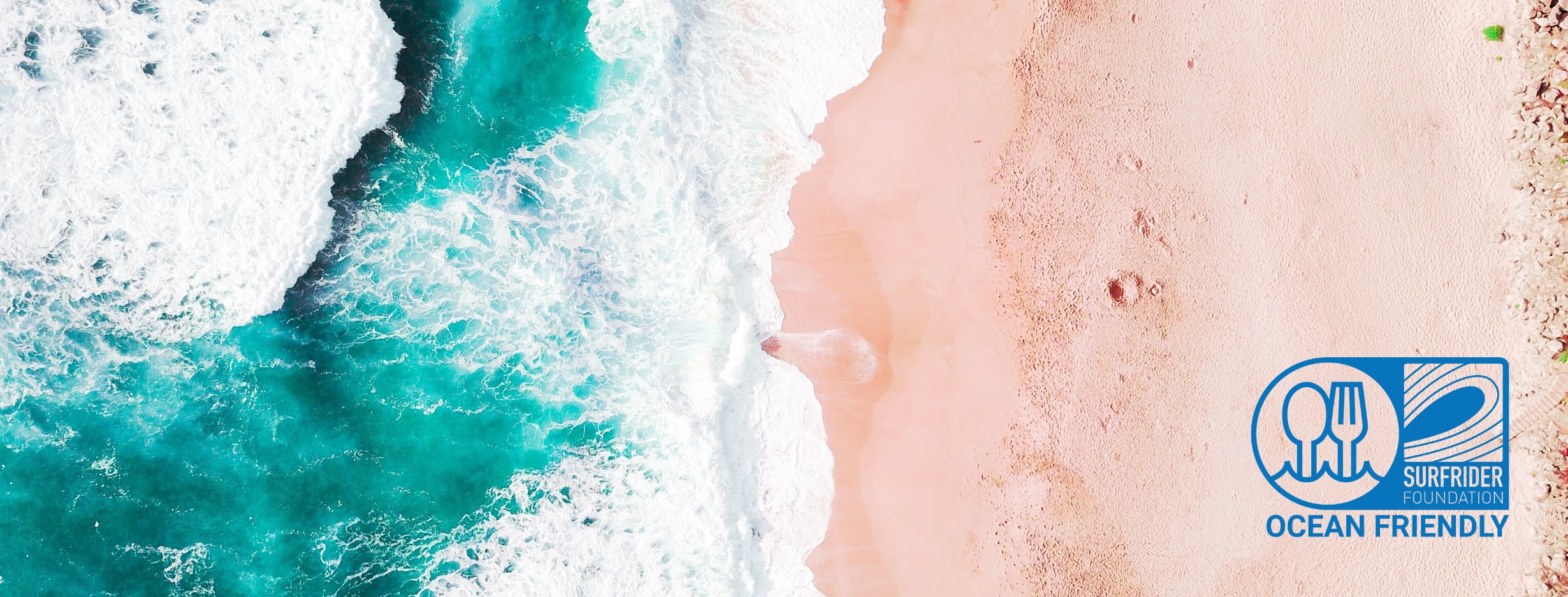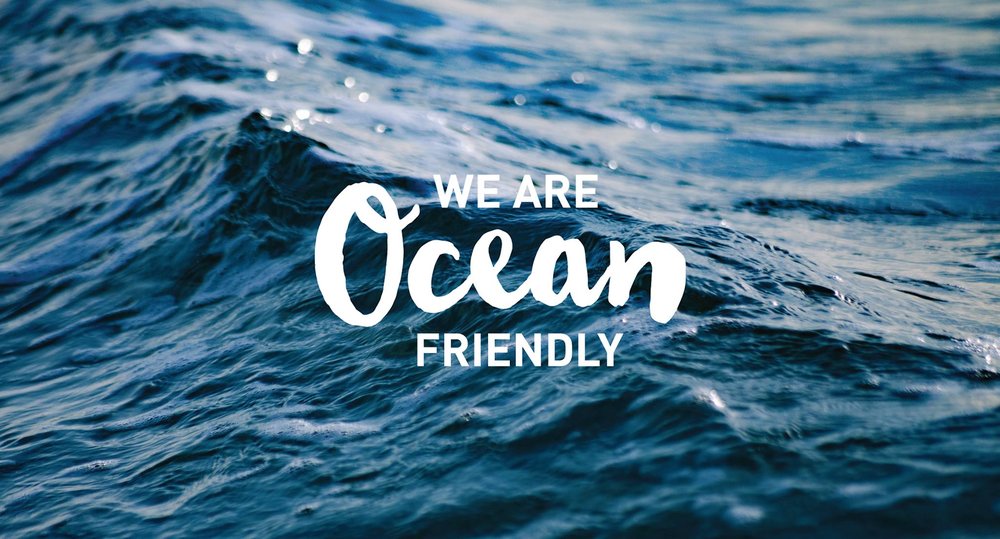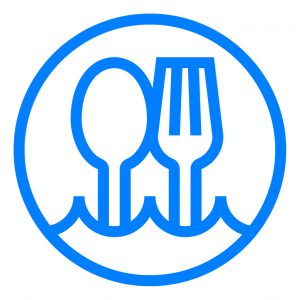
Written by Sabaitide
January 1, 2021

If you have been involved with The Surfrider Foundation for a while now, perhaps you’ve heard us use the term “Ocean Friendly,” but what does it really mean? Essentially, to be Ocean Friendly means to be aware of the environmental impact of our everyday actions and then making sustainable choices as conscious consumers that will lessen our collective impact on the ocean.
Because I’m from a coastal city, it would seem to make sense for more of us to be Ocean Friendly, but that’s not necessarily the case. The reality is that many people and businesses have been slow to embrace more sustainable practices, but luckily for us, Surfrider Foundation Ventura has a very strong influence in our community and is here to encourage more Ocean Friendly practices.
Okay, that seems like a collective effort. Can what I do as an individual person really make a difference on the environment? The answer is yes! We make decisions every single day that impact the environment, so I’d like to encourage you to be conscious of the ocean when making those everyday decisions.
Here are a few simple ways to get started:
Clean the Beach When You’re There
I enjoy nice long walks on the beach with friends, but if I come across a piece of trash, I will stop mid-sentence to pick it up and hold onto it until I see a trash can. I usually don’t come prepared to pick up trash when I go to the beach, so one thing that I can do now is to keep my clean up gear on me when I go on my walks.
Another thing that I can do is track how much trash I collect on my phone with the Marine Debris Tracker app and select the Surfrider Foundation US data card list to input the trash I picked up. Surfrider then uses this data to help support local ordinances and plastic bans that keep our ocean, waves, and beaches clean. How neat is that?
The app is a great way to stay engaged on individual beach clean ups. Another way to get involved with us is to participate in a group clean up. Surfrider Foundation Ventura hosts beach clean ups twice a month at Rincon Parkway and C Street. More information can be found here.
Cut Back on Single-Use Plastics
A lot of the trash found on the beach are single-use plastics that did not make it into a trash bin. It makes me think of all of the single-use plastics in my everyday life that I would like to transition away from during my Ocean Friendly challenge. Besides skipping straws and lids on my drinks, this will also include cutting back on other things like plastic food packaging and certain hygienic products where there are now more sustainable alternatives on the market.
Make it a Habit to Use Reusable Items
I usually bring my own mug for the free coffee at church, but I’d like to make it a habit to be more environmentally conscious every day, not just on Sundays. Do you know what I mean? We still use a lot of single-use plastics as a community, especially with drinks and coffee, but one way to offset our plastic consumption is to make it a habit to bring our own cups.
I do want to note that Covid was an interesting time for food services. For a while, many restaurants transitioned to to-go options only, while coffee and smoothie shops were not allowed to permit the option to use our own reusable cups. That meant a lot more single-use plastics were put out there. I don’t necessarily want to blame restaurants for the nature of the situation, but by now, I hope enough time has passed for coffee shops to allow us to bring our own mugs again.
Bring Your Own Shopping Bags
The California ban on single-use plastic bags is a reminder that bold environmental initiative can happen. It may have been inconvenient at first, but the inconvenient truth is that we need to take action at the local level to implement more sustainable practices. When you go grocery shopping, please remember to bring your own shopping bags! It’s best to keep a few stashed in your purse, backpack, or car just in case.
Support Ocean Friendly Businesses
The source of a lot (but not all) of the environmental impact in our communities come from restaurants. Restaurants naturally produce a lot of food waste, go through supplies that need to be trashed or recycled, and they also need to provide take out options which oftentimes include single-use plastics because some business owners would rather weigh costs over sustainable practices. Others may not even be informed about what it means to be an Ocean Friendly Business.
When I was a waitress at a restaurant, I politely mentioned the straw ban to my manager because she was not informed about it. By the next weekend, there was a swift change in policy and straws were now only available upon request. It was a small mention, but it had a huge impact. Usually it just takes someone to speak up, but in other work situations, it takes more external pressure, like a local plastic ban, for other business owners to transition away from cheap styrofoam.
Ocean Friendly Restaurants make the environmentally conscious decision to oppose the use of single-use plastics and styrofoam packaging in their businesses. Instead, they boldly embrace sustainable alternatives for their take out options and adhere to a list of other criteria outlined in The Surfrider Foundation’s Ocean Friendly Restaurants program. More information can be found here.
Ocean Friendly mitigation at the local level is very effective because it addresses local risks. When our beaches are trashed with single-use plastics, that’s a community problem. We get to make decisions every single day, and as a coastal community, I hope that we can encourage each other to make decisions that are conscious of our environmental impact. To be more Ocean Friendly will be my new year's resolution, and I want to challenge all other ocean lovers to do the same.

взять потребительский кредит под маленький процент
